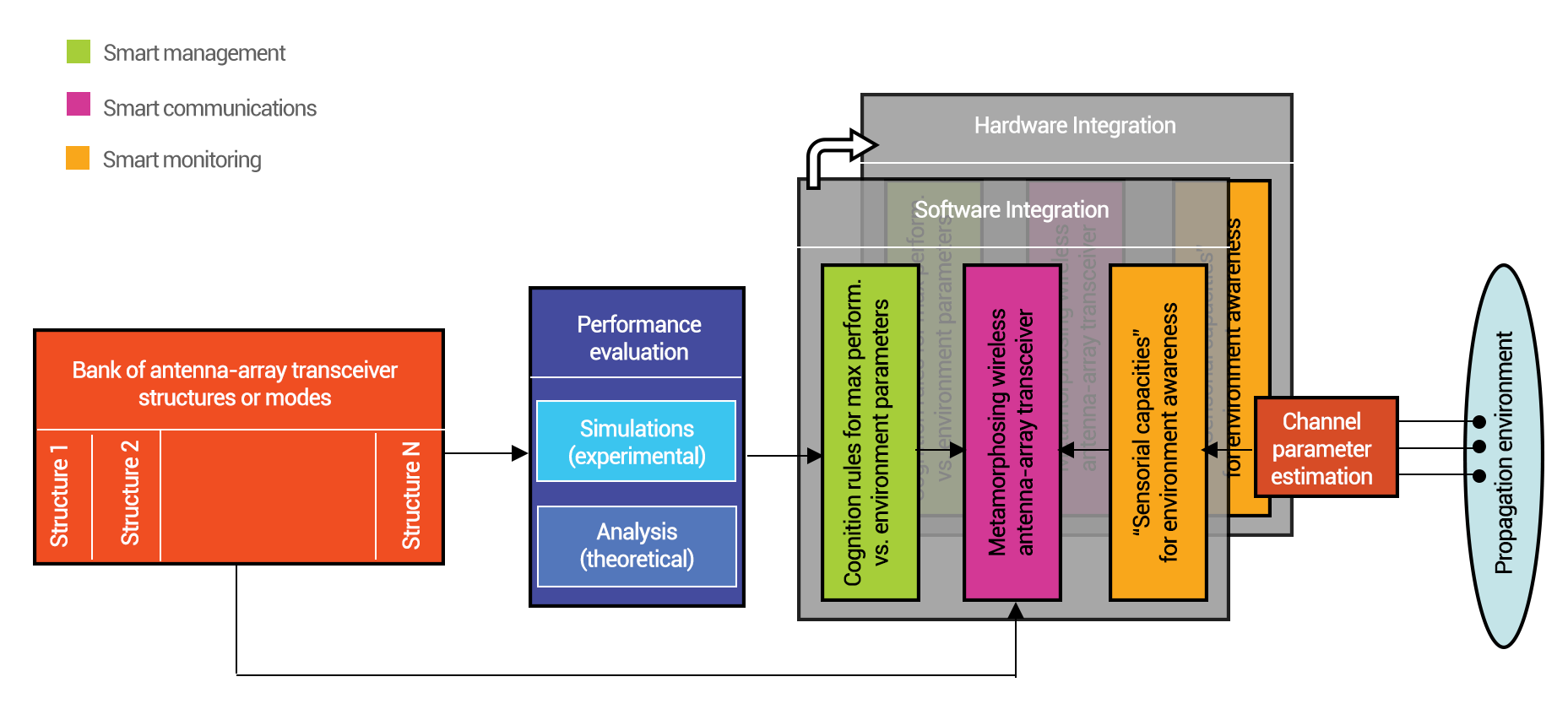The Wireless Lab, located at the heart of downtown Montreal, is part of the Energy, Materials, and Telecommunications (EMT) Centre of the Institut National de la Recherche Scientifique (INRS), an affiliate university of the University of Quebec network.
The Wireless Lab has established itself as a leading national research Lab dedicated to the application of Signal Processing in the global field of wireless communications. It has brought with that application a particular focus on wireless technologies, statistical processing of multi-dimensional signals, MIMO, multi-user detection & synchronization, interference cancellation, etc. By offering a platform to pursue innovative research programs, the Wireless Lab has created a significant archive of critical knowledge to benefit students, researchers, and industrials.
The Wireless Lab has distinguished itself by its pioneering collaborative projects that aim to consolidate the idea of university-industry collaboration. Forged in a period of passionate discussions and studies, the Wireless Lab has been constantly broadening and deepening those considerations by making significant contributions in the best scientific journals and conferences in the field.
Our aim is to continue seeking novel areas of cutting-edge research and development in wireless technologies & applications.
System-Integration-Oriented Research Approach:
One of the prime objectives of the Wireless Lab is to showcase with demos
the new wireless transceiver technologies developed by its team members to
significantly strengthen the scope of their research achievements and increase
the potential of their technology transfer. The Wireless Lab has been, indeed,
an advocate of a challenging “system-integration-oriented approach” in
algorithmic research on signal processing for wireless communications that
jointly tackles most of physical-layer issues; takes into account interaction
between subsystem components, any source of imperfection such as
estimation and modeling errors, implementation feasibility and costs,
etc.; and that integrates standardized link- and system-level simulations,
prototyping, and evaluation in real-world conditions in the assessment methodology, thereby providing tremendous added values in terms of scientific impact
and industrial relevance. An inspiring experience that allowed the Wireless Lab to shape the scope and vision of the NSERC CREATE PERSWADE Research Training Program (www.create-perswade.ca) it spearheads about wireless techs & apps and also shape its scope around the three main thrusts of
smart communications, smart monitoring &, and smart management from devices to networks.

×
![]()
Collaborative Research with Industry:
Over more than a decade, the Wireless Lab has already been able to gain the strong support of many industrial partners among wireless equipment
manufacturers, service providers, SMEs, start-ups or governmental agencies, through major and successful partnership projects on advanceds wireless
transceiver designs. It currently focuses on the development of new major paradigm-shifting wireless access virtualization schemes and “in-software
metamorphosing” antenna-array transceiver designs.
Research Training:
The Wireless Lab offers a very stimulating environment for training. This environment could indeed help students learn to give up oversimplified analytical
approaches for sophisticated system-level simulators that far-better grasp the complexity of today’s radio access and provide more realistic and reliable
results and insights. It could help them better understand standards when, very often ignored, could challenge work assumptions and value. It could help
students understand technology evolution challenges from an idea to a potential real-world application product. Through its network of industrial and
university collaborators, the Wireless Lab also provides students with precious opportunities for mobility, nationally or internationally, through internships or
postdoctoral stays at world-class venues in industry or academia.

